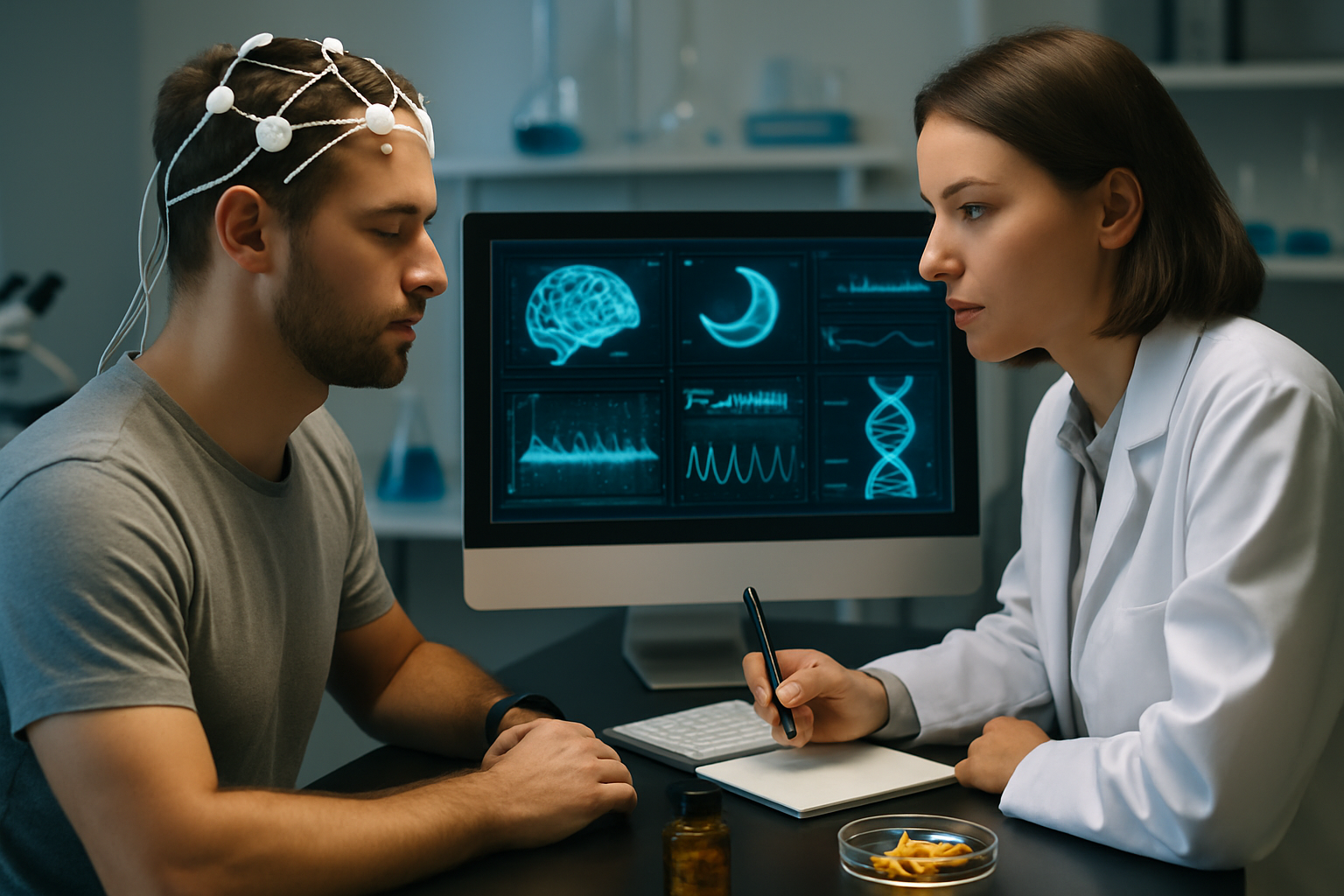How Dementia Tests Assess Memory and Cognitive Function
A dementia test is a set of clinical tools used to evaluate changes in thinking, memory, language, and daily functioning. Tests can be brief screening questionnaires given by a primary care doctor or detailed neuropsychological batteries administered by specialists. Results help identify likely causes of cognitive change, differentiate dementia from other conditions, and guide further evaluation of the brain and overall health.

This article is for informational purposes only and should not be considered medical advice. Please consult a qualified healthcare professional for personalized guidance and treatment.
dementia: what tests assess
Dementia testing focuses on patterns of decline rather than single symptoms. Clinicians look for impaired memory for recent events, difficulty with language or problem-solving, changes in judgment, and loss of independence in daily tasks. Screening tools summarize performance across domains and compare results to expected levels for age and education. A clear history from the person and an informant (family member or caregiver) is essential because clinical testing captures only part of the picture and may miss fluctuating or early changes.
Beyond screening, a comprehensive diagnostic process examines onset, course, and associated features such as movement symptoms, mood changes, or sleep problems. Some dementia causes are reversible or treatable, so testing often includes physical exam elements, medication review, and laboratory checks to rule out metabolic, infectious, or nutritional contributors to cognitive change.
memory: common screening questions
Memory screening often begins with simple tasks that probe short-term and working memory: recalling lists of words, remembering brief stories, or learning a few items and recalling them after a delay. Standardized instruments, such as brief cognitive screens, provide cutoffs that suggest whether further assessment is needed. However, cultural, educational, and language differences can affect scores, so results are interpreted alongside clinical judgment and background information.
Informant questionnaires that ask about changes in daily memory performance—like forgetting appointments, repeating questions, or misplacing important items—offer complementary information. Those reports help clinicians distinguish normal age-related forgetfulness from a progressive memory decline that interferes with independence.
cognition: standardized assessments
Cognition covers attention, executive function, language, visuospatial ability, and memory. Standardized assessments include brief screens (for example, tests widely used in clinical settings) and detailed neuropsychological batteries that measure specific cognitive processes. Neuropsychological testing is useful for clarifying the pattern and severity of deficits, tracking change over time, and assisting with differential diagnosis between dementia subtypes and other neurological or psychiatric conditions.
These formal assessments are typically administered by psychologists or trained specialists and often include objective scoring and comparison to population norms. Results can inform recommendations for care planning, cognitive rehabilitation, and potential participation in clinical evaluations or trials.
brain: imaging and lab tests
Brain-focused tests complement cognitive evaluation. Structural imaging such as MRI or CT can identify strokes, tumors, hydrocephalus, or atrophy patterns that support a dementia diagnosis. Functional imaging (like FDG-PET or amyloid PET) may be used in select situations to clarify the cause of cognitive symptoms when results would change management. Routine laboratory testing—thyroid function, vitamin B12, metabolic panels, and sometimes infectious or inflammatory markers—helps exclude treatable contributors to cognitive decline.
Electroencephalography (EEG) or cerebrospinal fluid analysis are less commonly used but may be appropriate when clinicians suspect specific conditions such as encephalitis, prion disease, or atypical dementia presentations. Imaging and lab tests are interpreted alongside clinical history, cognition scores, and physical findings to form a comprehensive assessment.
doctor: who to see and what to expect
Initial evaluation often starts with a primary care doctor who can perform screening tests, review medications, and order basic labs and imaging. Referral to specialists—neurologists, geriatricians, psychiatrists, or neuropsychologists—may follow when the diagnosis is unclear, symptoms are complex, or specialized testing is needed. A specialist visit typically includes a detailed cognitive examination, thorough medical and psychiatric review, and coordination of further testing or multidisciplinary care.
When seeking evaluation, consider local services for geriatrics, memory clinics, or neuropsychology to access comprehensive testing and support. Family members’ observations are valuable in these encounters because they can report functional changes and symptom progression that the person being evaluated may not notice.
Conclusion
Dementia testing is a multi-step process combining cognitive screening, informant history, medical evaluation, laboratory testing, and brain imaging when indicated. The goal is to determine whether cognitive changes reflect dementia, identify possible underlying causes, and guide appropriate care and planning. Because results depend on many factors—testing choice, examiner expertise, and patient background—interpretation should come from qualified healthcare professionals who can integrate findings into a personalized clinical context.




